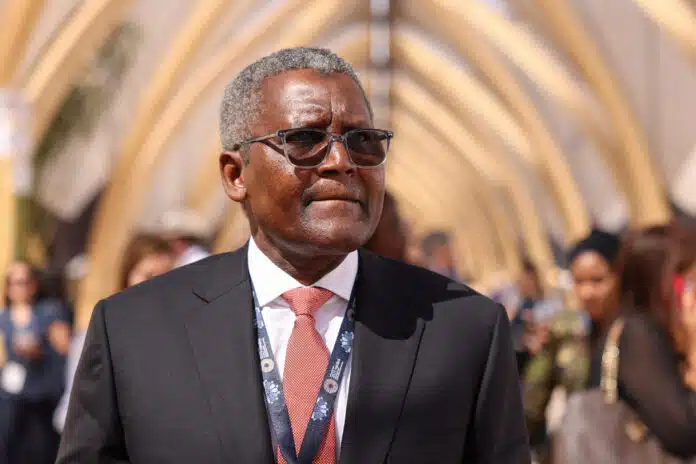By: Daure David
Africa’s richest man, Alhaji Aliko Dangote, has delivered a sobering verdict on the future of Nigeria’s state-owned refineries, declaring that they may never function again despite an estimated $18 billion spent on their rehabilitation.
Speaking during a visit by members of the Global CEO Africa group to the Dangote Petroleum Refinery in Lekki, Lagos, Dangote likened the effort to modernize the aging facilities to upgrading a 40-year-old car. “Even if you change the engine, the body will not be able to take the shock of that new technology engine,” he said bluntly.
The refineries in question located in Port Harcourt, Warri, and Kaduna have long been plagued by mismanagement, outdated infrastructure, and failed turnaround maintenance efforts. Dangote revealed that he and other investors had acquired the refineries in 2007 for $750 million during President Olusegun Obasanjo’s administration, only to return them after the deal was reversed by President Umaru Musa Yar’Adua.
Despite repeated government assurances and billions of dollars in funding, the refineries remain non-operational. Former President Obasanjo has echoed Dangote’s concerns, stating that the Nigerian National Petroleum Company (NNPC) was never equipped to manage the facilities and that vested interests within the system have perpetuated corruption. “In a civilised society, those people should be in jail,” Obasanjo said.
The NNPC has since acknowledged the challenges, with its Group Chief Executive Officer, Bayo Ojulari, confirming that the company is now considering selling the refineries due to the complexity of their rehabilitation.
Industry experts have called for a shift in strategy, urging the federal government to privatize the refineries and focus on regulatory oversight rather than direct management. Meanwhile, Dangote’s privately owned 650,000-barrel-per-day refinery is expected to significantly reduce Nigeria’s dependence on imported fuel and reshape the country’s energy landscape.
As public frustration mounts over the lack of accountability for the billions spent, calls for transparency and reform in Nigeria’s oil sector continue to grow louder.







